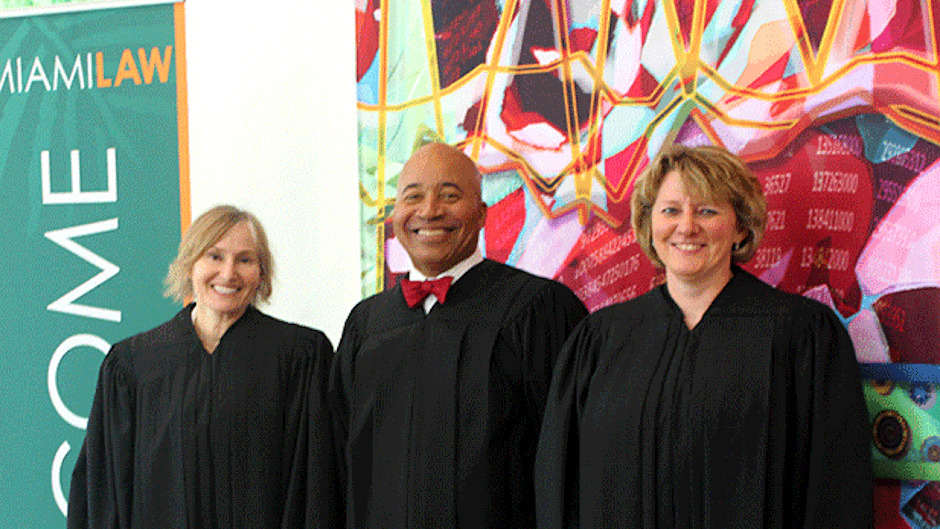The U.S. Court of Appeals for Veterans Claims’ principal office is in Washington, D.C., but the Court is authorized to sit anywhere in the United States and does so a limited number of times each year including on January 25, 2019, at the University of Miami School of Law which has an ongoing commitment to serving veterans.
After returning from his service, Frederick L. Payne experienced several physical hardships. It was in 1993 that the Air Force veteran applied for disability benefits through Veterans Affairs, which he was granted.
Yet, as time progressed, so did the ailments of his body leading to him applying for higher disability benefits 20 years later in 2013. A regional office of the VA awarded him the increased benefits.
But in 2016, when Payne once again applied for higher disability benefits, in addition to special monthly compensation, due to carpal tunnel syndrome under “loss of use of a creative organ,” issues arose after the VA told him he would need to fill out a new claim. Payne argued that the issues were tied together and appealed.
When his first appeal was denied, Payne appealed to the U.S Court of Appeals for Veterans Claim, which was held last week at the University of Miami School of Law.
The court was established in 1988 after the Veterans’ Judicial Review Act making it the youngest “Supreme Court” in the United States. The court’s main function is to perform final reviews of the VA’s decisions and a final place for veterans to share their stories and need for disability compensation.
In this session, Chief Justice Robert N. Davis, a retired member of the U.S. Navy, Judge Margaret Barkley, and Judge Amanda L. Meredith presided over the court where representatives for Payne and the Veterans Affair Board each gave their reasoning as to why, or why not, a separate claim is needed.
Each side was given 30 minutes for argument, with questions coming often from the presiding judges. The court concluded without a decision being made; it will be released in a formal document at a later time. Concluding the session, the Judges once again came back out, this time without their robes, for a casual question and answer session that included the attorneys and the audience made up of law students and interested members of the Miami Law community and public.
The law school and the University of Miami are committed to working closely with veterans. Since 2010, Miami Law has hired two full-time lawyers to help second- and third-year students assisting veterans in various claims and cases. In addition, they have partnered with Operation Sacred Trust to end homelessness among low-income families, those with disabilities, and veterans. Miami Law’s Health Rights Clinic has a Veterans’ Rights Project and also runs a Veteran’s Medical-Legal Partnership with UM’s Miller School of Medicine. Miami Law has represented over 150 veterans and has been able to secure $4 million to help with this mission.

